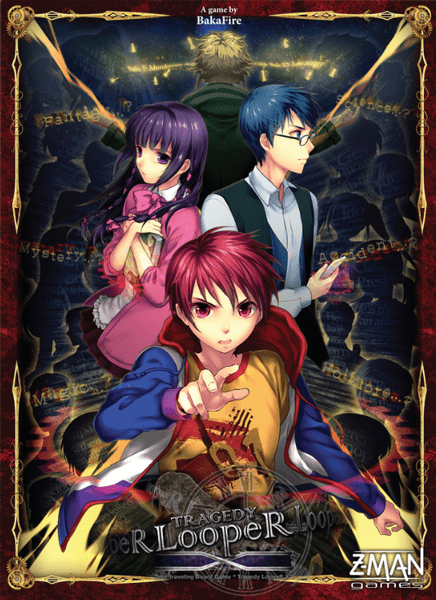Tragedy Looper (2011) Board Game
Tragedy Looper is a deduction and bluffing board game released in 2011 by designer BakaFire. Players work together to prevent tragedies from occurring by unraveling the mystery behind them. The game has received critical acclaim for its unique gameplay mechanics and challenging puzzles.
Game Components of Tragedy Looper
How To Setup Tragedy Looper
To set up Tragedy Looper, the Mastermind begins by selecting a scenario and setting up the board according to the scenario’s specific rules. This includes laying out the location boards, character tokens, and incident cards. The Mastermind also assigns roles to characters, which are kept secret from the Protagonists. The Protagonists only know the characters and the scheduled incidents at the start. Each scenario has its own set of rules and conditions, which are outlined in the scenario book.
Gameplay Mechanics and Game Objective
Player Experience
Tragedy Looper offers a highly engaging and mentally challenging experience. The game starts with the Mastermind setting up a seemingly insurmountable puzzle, while the Protagonists scramble to gather information. As the game progresses, the Protagonists become more adept at anticipating the Mastermind’s moves, turning the game into a tense and often humorous battle of wits. The time loop mechanism allows for gradual learning and strategic adjustments, making each session unique.
Pros
Cons
Personal Thoughts on Tragedy Looper
Tragedy Looper is ideal for a small, dedicated group of players who enjoy deduction and strategic thinking. It’s not a game for casual players due to its complexity and the time commitment required to learn and play. However, for those who invest the time, Tragedy Looper offers a unique and rewarding experience that differs significantly from other board games. If you have a consistent group willing to dive deep into the game’s mechanics and scenarios, Tragedy Looper can provide countless hours of challenging and entertaining gameplay.
We are supported by our audience. When you purchase through links on our site, we may earn an affiliate commission, at no extra cost for you. Learn more.

